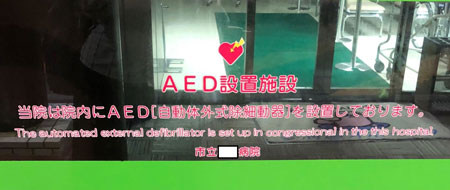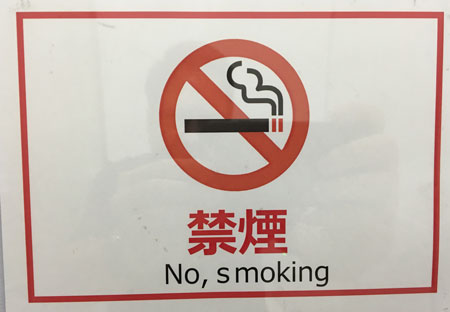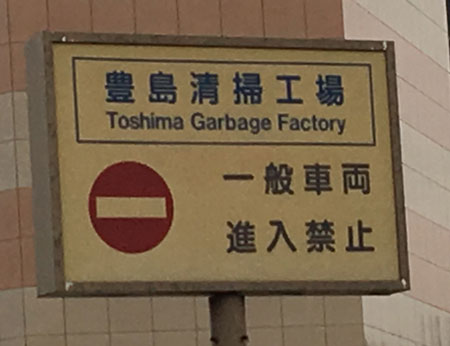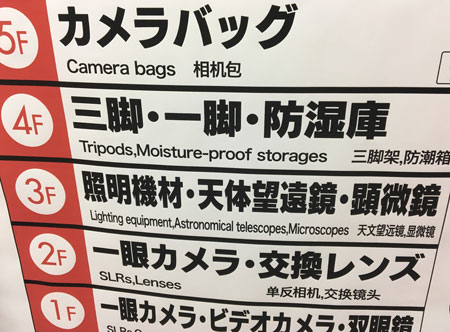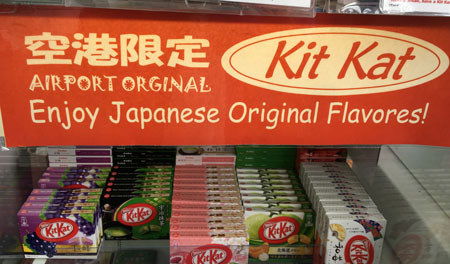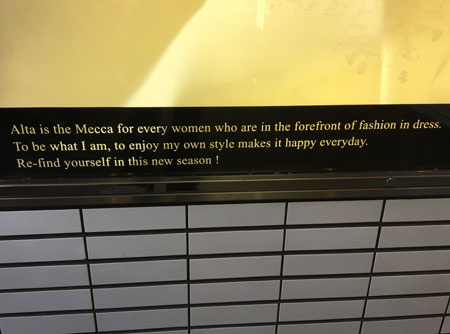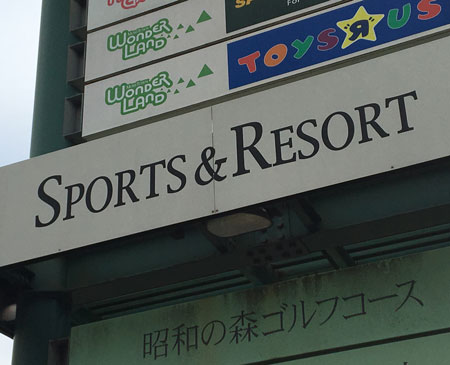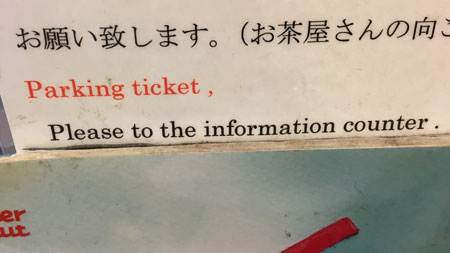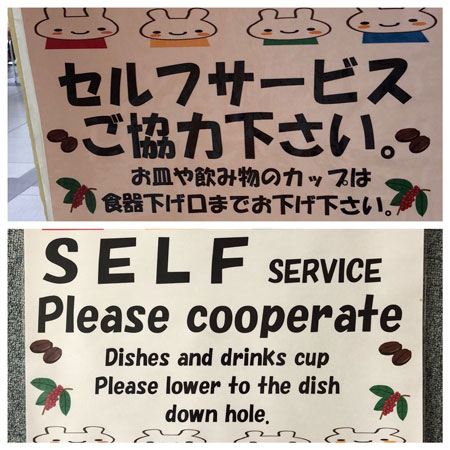
X Dishes and drinks cup
Please lower to the dish down hole.
Tim says:
I can’t imagine exactly what a “dish down hole” looks like. Are we throwing the dishes and cups into the garbage?
That’s the strangest part of this sign, but there are a few smaller problems….
We wouldn’t say “drinks cup.” “Cups for drinks” is better, but really, would the cups be used for anything else besides drinks?! Simply “cups” is best.
Using “lower” as a verb is common when someone is using a machine, or has an object attached to a rope and you are lowering it into a hole by rope. I don’t think the “dish down hole” is so deep!
This photo was submitted by ミキコリさん, who says that, after she took the photo, the sign was replaced with a much simpler and better-written sign:
O Return trays here
Thank you to ミキコリさん for sending this photo!
周囲にある英語を見て、果たしてそれが正しい英語なのだろうかと感じる英語はありますか?「あの英語は絶対に間違っている」という英語の表記はありますか?看板の写真を撮って、Machigai.comに送りましょう!とんでもない英語だったら、このコーナーで出します!


